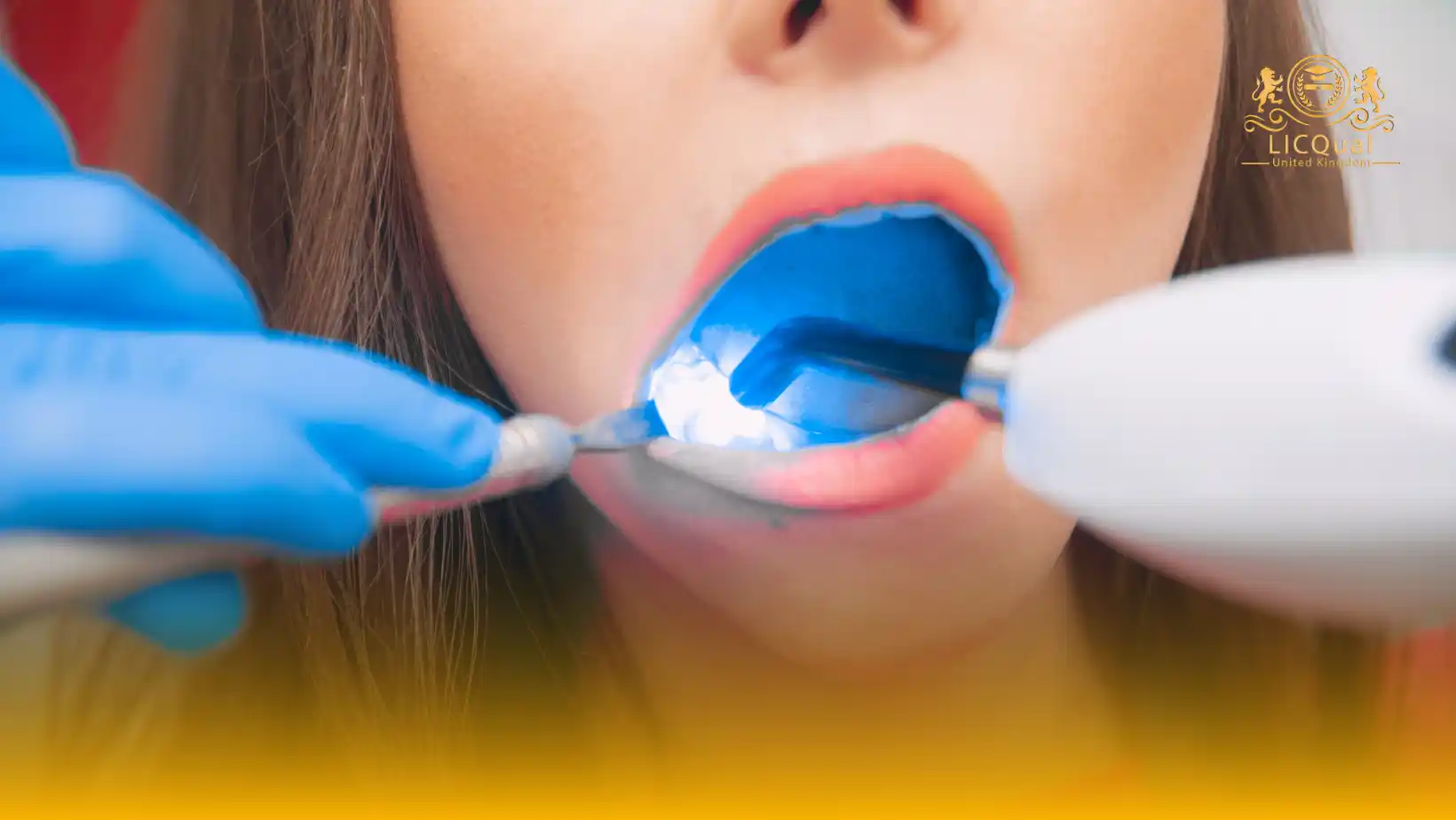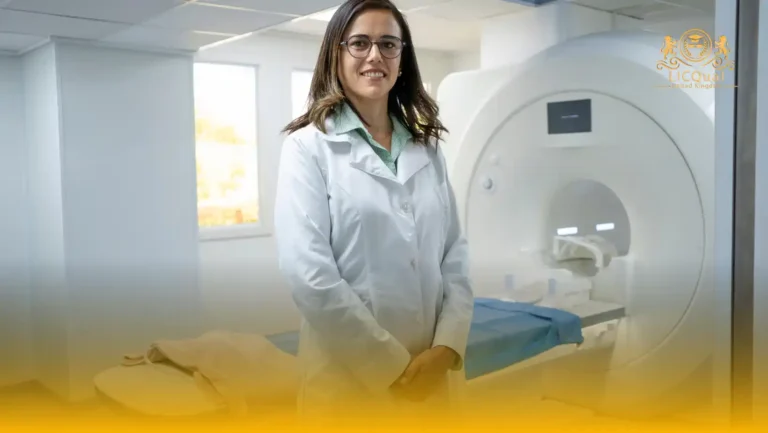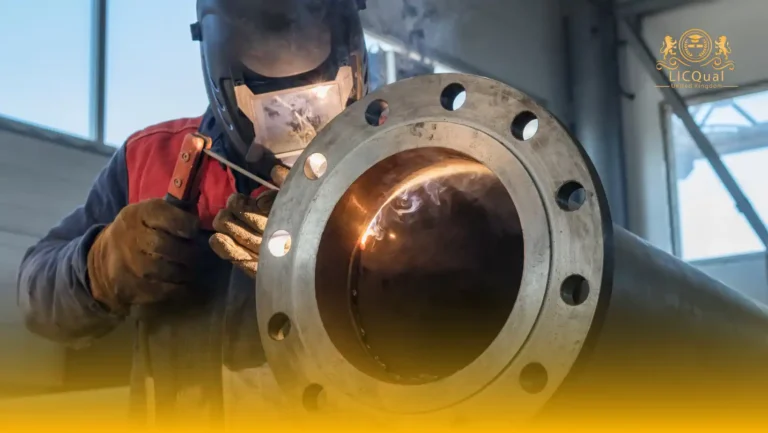The LICQual Level 3 Certificate in Laser Dentistry is a specialised qualification designed for dental professionals seeking to enhance their expertise in the use of laser technology within dental practice. This course is intended for learners with existing dental experience and is not suitable for fresh candidates. It provides an excellent opportunity for professionals to expand their knowledge, improve clinical skills, and advance their career prospects while engaging in Continuing Professional Development (CPD).
Throughout this qualification, learners will explore the principles of laser dentistry, including laser physics, safety protocols, and clinical applications across various dental procedures. The course covers both theoretical and practical elements, ensuring learners gain a comprehensive understanding of how to safely and effectively incorporate laser technology into patient care.
Centres delivering the LICQual Level 3 Certificate in Laser Dentistry must maintain high standards by employing competent and qualified staff with specialised knowledge in laser dentistry. Additionally, centres are required to provide access to suitable clinical environments, state-of-the-art laser equipment, and comprehensive learning materials. This ensures learners receive quality training, practical experience, and support to achieve successful outcomes.
Course Overview
Qualification Title
LICQual Level 3 Certificate in Laser Dentistry
Total Units
6
Total Credits
24
GLH
120
Qualification #
LICQ2200650
Qualification Specification
To enroll in the LICQual Level 3 Certificate in Laser Dentistry, applicants must meet the following criteria:
|
Qualification# |
Unit Title |
Credits |
GLH |
|---|---|---|---|
|
LICQ2200650-1 |
Introduction to Laser Dentistry |
4 |
20 |
|
LICQ2200650-2 |
Laser Physics and Equipment |
4 |
20 |
|
LICQ2200650-3 |
Clinical Applications of Laser Dentistry |
4 |
20 |
|
LICQ2200650-4 |
Patient Assessment and Laser Treatment Planning |
4 |
20 |
|
LICQ2200650-5 |
Safety and Infection Control in Laser Dentistry |
4 |
20 |
|
LICQ2200650-6 |
Practical Laser Dentistry Techniques |
4 |
20 |
By the end of this course, learners will be able to:
Unit 1: Introduction to Laser Dentistry
- Explain the fundamental principles and history of laser technology in dentistry.
- Identify different types of dental lasers and their specific uses.
- Describe relevant safety protocols and regulatory requirements related to laser dentistry.
- Understand the benefits and limitations of laser use in dental practice.
Unit 2: Laser Physics and Equipment
- Demonstrate knowledge of the basic physics underlying laser operation.
- Identify components and functions of laser equipment used in dentistry.
- Perform routine maintenance, calibration, and safety checks on laser devices.
- Recognize common equipment faults and appropriate troubleshooting steps.
Unit 3: Clinical Applications of Laser Dentistry
- Describe the use of lasers in soft tissue and hard tissue dental procedures.
- Apply laser technology in periodontal therapy and restorative treatments.
- Differentiate between laser wavelengths and their clinical indications.
- Evaluate clinical cases where laser treatment is appropriate and effective.
Unit 4: Patient Assessment and Laser Treatment Planning
- Conduct comprehensive patient assessments to determine suitability for laser treatment.
- Identify contraindications and potential risks associated with laser dentistry.
- Develop detailed treatment plans incorporating laser technology.
- Communicate laser treatment options, benefits, and risks effectively to patients.
Unit 5: Safety and Infection Control in Laser Dentistry
- Implement laser safety protocols to protect patients and dental staff.
- Apply infection control procedures specific to laser dentistry.
- Respond appropriately to emergencies or adverse events during laser procedures.
- Maintain compliance with health and safety legislation related to laser use.
Unit 6: Practical Laser Dentistry Techniques
- Demonstrate correct handling and operation of laser equipment in a clinical setting.
- Perform basic laser procedures on soft and hard tissues under supervision.
- Assess personal competency and safety during practical laser applications.
- Reflect on clinical practice to improve laser treatment techniques.
The LICQual Level 3 Certificate in Laser Dentistry is designed for dental professionals and allied healthcare practitioners who want to specialize in laser-assisted dental procedures. This course is ideal for those seeking to enhance their clinical skills, improve patient outcomes, and gain international recognition in laser dentistry. Whether you are a dentist, hygienist, or dental specialist, this program provides practical expertise and evidence-based knowledge to confidently implement laser technology in daily practice.
1. General Dentists and Practitioners
- Dentists aiming to integrate laser technology into their practice.
- Professionals seeking to improve minimally invasive treatment outcomes.
- Clinicians wanting international certification in laser dentistry.
- Practitioners interested in advanced soft and hard tissue procedures.
- Dentists focused on enhancing patient comfort and recovery times.
2. Dental Hygienists and Assistants
- Hygienists seeking practical training in laser applications.
- Assistants supporting laser procedures in clinical settings.
- Professionals aiming to enhance patient safety during laser treatments.
- Team members learning evidence-based laser protocols.
- Staff pursuing recognized certification to boost professional credibility.
3. Dental Specialists
- Periodontists, prosthodontists, and endodontists incorporating lasers.
- Specialists aiming to refine precision and efficiency in procedures.
- Clinicians learning advanced cosmetic and restorative laser techniques.
- Experts seeking hands-on experience with state-of-the-art dental lasers.
- Professionals improving treatment predictability and outcomes.
4. Dental Students and Graduates
- Recent graduates exploring specialized dental technologies.
- Students preparing for advanced careers in laser-assisted dentistry.
- Learners aiming for internationally recognized credentials.
- Individuals motivated to gain hands-on clinical experience.
- Aspiring professionals seeking expertise in minimally invasive dentistry.
5. Academic and Research Professionals
- Educators incorporating laser dentistry into teaching programs.
- Researchers studying clinical applications of dental lasers.
- Academics developing evidence-based protocols for laser use.
- Professionals conducting studies on patient outcomes with lasers.
- Instructors providing practical laser training for dental students.
6. Healthcare and Multidisciplinary Teams
- Medical staff collaborating with dental teams on patient care.
- Professionals managing oral-systemic health through laser interventions.
- Staff supporting treatment for medically complex patients.
- Practitioners integrating laser therapy into overall patient management.
- Professionals improving patient outcomes with minimally invasive approaches.
7. Career-Focused Dental Professionals
- Individuals aiming to expand clinical and practice opportunities.
- Professionals seeking advanced certification in modern dentistry.
- Dentists enhancing their service offerings with laser treatments.
- Learners pursuing international accreditation and recognition.
- Dental professionals committed to excellence and innovation in practice.
This course equips a wide range of professionals to gain practical and scientific expertise in laser dentistry, enhancing patient care while advancing their careers.
- Qualified Trainers: Centres must have certified and experienced laser dentistry trainers who hold relevant professional qualifications and practical expertise in laser dental treatments.
- Laser Equipment: Access to up-to-date, well-maintained dental laser devices covering soft and hard tissue applications is essential for practical training sessions.
- Training Facilities: Centres should provide fully equipped clinical environments that meet health and safety regulations, ensuring a safe learning space for both learners and trainers.
- Health and Safety Compliance: Centres must adhere to strict laser safety protocols and infection control standards according to national and international dental regulations.
- Assessment Resources: Availability of appropriate assessment tools and facilities to conduct practical and theoretical evaluations of learners.
- Learning Materials: Provision of comprehensive course materials, including manuals, digital resources, and up-to-date literature on laser dentistry.
- Student Support: Centres should offer adequate learner support services, including guidance on course requirements, access to clinical practice, and mentoring throughout the course.
- Regulatory Accreditation: Centres must be accredited or recognized by relevant dental or educational regulatory bodies to deliver this Level 3 qualification.
Assessment and Verification
All units within this qualification are subject to internal assessment by the approved centre and external verification by LICQual. The qualification follows a criterion-referenced assessment approach, ensuring that learners meet all specified learning outcomes.
To achieve a ‘Pass’ in any unit, learners must provide valid, sufficient, and authentic evidence demonstrating their attainment of all learning outcomes and compliance with the prescribed assessment criteria. The Assessor is responsible for evaluating the evidence and determining whether the learner has successfully met the required standards.
Assessors must maintain a clear and comprehensive audit trail, documenting the basis for their assessment decisions to ensure transparency, consistency, and compliance with quality assurance requirements.







